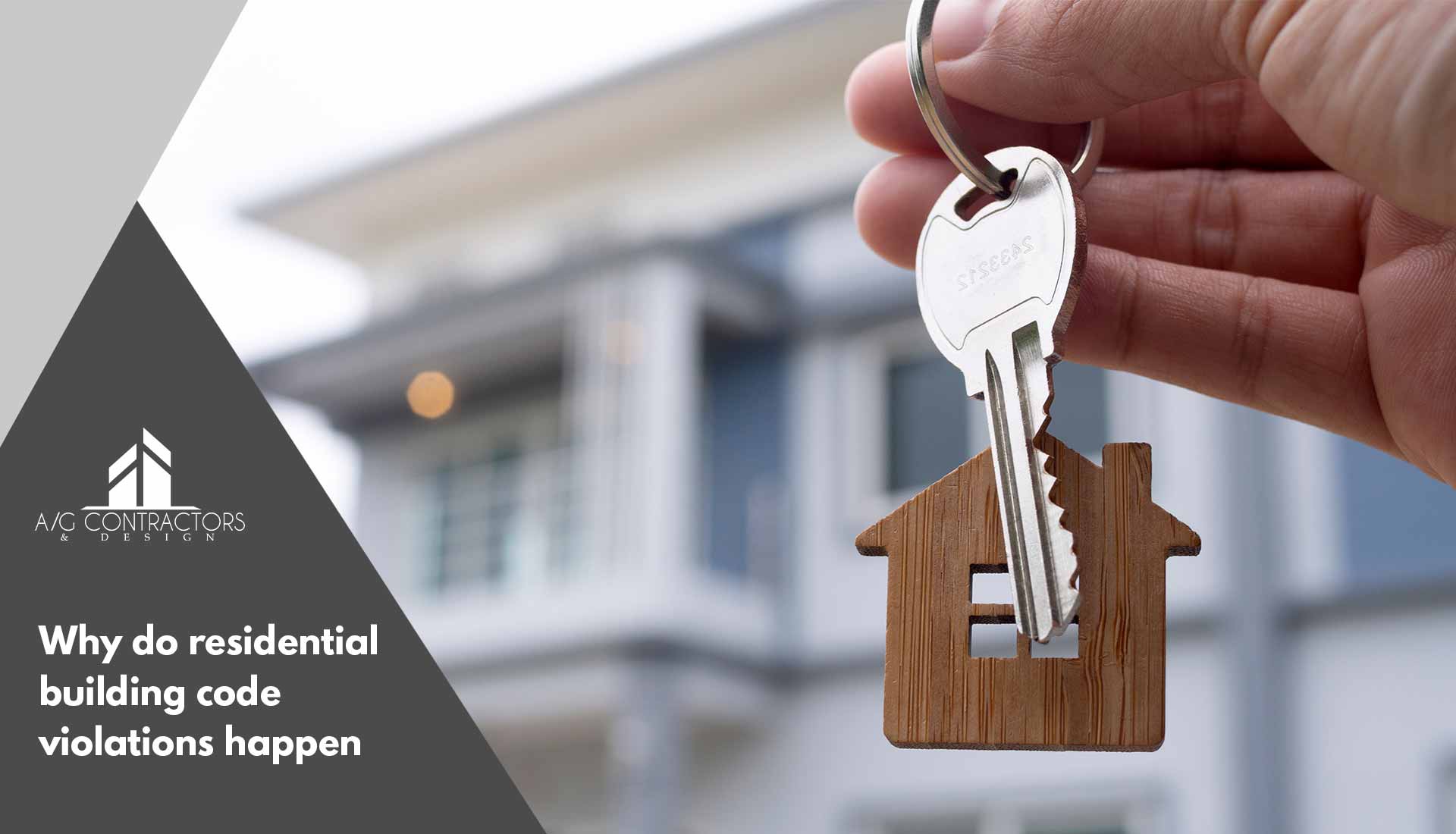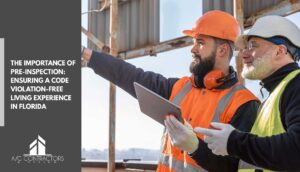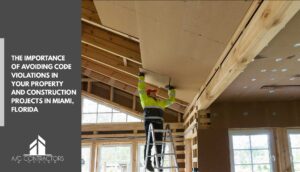In any city in the United States, you can drive down almost any street and see a building with a code violation. Whether it’s a missing or damaged roof tile, unsafe structures, illegal siding, or an improperly installed air conditioning unit, these common housing code violations are ubiquitous. But why do they happen so often? And more importantly, what can be done to prevent them? In this post, we’ll take a look at some of the most common residential building code violations and explore why they happen in the first place. We’ll also offer some tips on how to avoid them and keep your home up to code. Stay tuned!
People don’t understand the Florida building code
The Florida Building Code (FBC) is a set of rules that establish minimum requirements for the design, construction, and quality of buildings and structures throughout the state. A major element of the FBC is chapter 5, which deals with residential building construction and renovation.
The purpose of these regulations is to protect public safety and general welfare by establishing standards for building construction and renovation with specific regard to the health, safety, and general welfare of those occupying such buildings or structures.
By requiring that all homes be constructed and renovated under uniform standards, they ensure a minimum level of quality throughout the state. But it’s important to note that the FBC is only one part of the picture. You can read more about this in our post on Florida building codes, but the main idea is that the FBC lays out minimum requirements for how to build a house while your local jurisdiction’s zoning, land use, and subdivision ordinances determine whether you’re allowed to build a house at all.
In other words, just because something is legal under code enforcement doesn’t mean you’re allowed to do it.
Ignorance of the building codes 
This is by far the most common reason that homes have code violations, which probably isn’t surprising given that these laws are usually hard for laymen to understand. It’s also the easiest problem to solve because all you need is a building official, general contractor, or building inspector that can help you understand the local codes and show you how to comply with them.
Unfortunately, building officials can be hard to find in some areas, and they don’t come cheap. A licensed general contractor is the best solution for this problem.
Laziness or apathy on the part of builders or property owner
Many code violations are due to a lack of care or attention on the part of the property owner. Failure to maintain a roof, a sagging fence, shoddy insulation, etc. – these problems might seem minor at first, but they can lead to bigger issues in the future.
Local jurisdiction’s building department will not be happy to see a violation on your property. They can require you to perform repairs, fines for non-compliance, and even take legal action against you if the violations aren’t addressed in a timely manner.
People are busy and they don’t have time to comply with all the building codes
This problem is less severe, but it’s common enough that we can’t ignore it. In truth, if you’re too busy to do everything required by code, building a house probably isn’t for you. We understand that not everyone has the time or money to hire a professional general contractor, but that’s what it takes.
It’s hard to know which codes apply to your specific situation
This is the most subjective code violation, but it’s important to remember that if you’re building something new, there are many laws that apply to your situation. If you’re converting a garage into an apartment, for example, you have to ensure that all local building codes are being followed.
This includes things like insulation, plumbing fixtures, fireplaces, electrical wiring, hazardous materials storage, air conditioning options, and much more. It’s easy enough to discover the requirements for your region by doing some research online or calling someone that knows about these things.
Forgetting to obtain permits before building
If you fail to get a building permit, the local authorities will take notice. Depending on where you live and what kind of project you’re undertaking, getting a permit can be easy or incredibly difficult.
In some areas, it’s possible to simply call up the permitting department and schedule an appointment without too much trouble. In others, however, requirements for a permit can be incredibly onerous and the permitting process can take months or even years.
While it is understandable that people may be busy and don’t have time to comply with all the building codes, this should not excuse them from ignorance of the code or from failing to obtain permits before beginning construction. The Florida building code exists for a reason, and it is important that everyone understands and follows it. If you are unsure of which codes apply to your specific situation, please do not hesitate to contact us. We would be happy to help you navigate these complicated regulations and ensure that your construction project meets all necessary standards.








